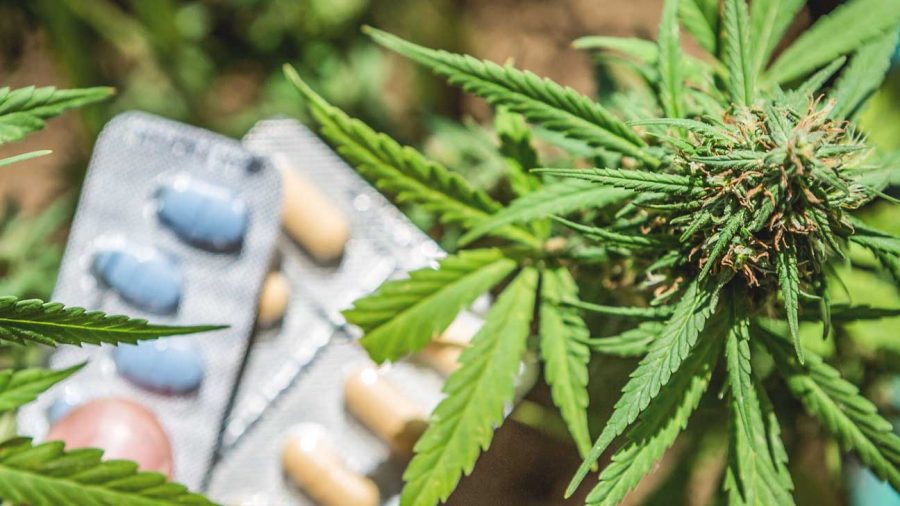JAMA studies reveal decrease in opioid prescriptions in cannabis legal states
Two peer-reviewed studies published in the JAMA Internal Medicine have revealed how cannabis use may have a positive impact on America’s opioid epidemic, which claimed 17,087 lives in 2016 alone.
The scientific studies showed how the number of opioid prescriptions dropped in U.S. states that had legislation that allowed for the legal use of cannabis.
JAMA Internal Medicine praised the research, stating how it delivered “results suggesting that cannabis legalization may play a beneficial role in the opioid crisis”.
What is the opioid epidemic?
 The opioid epidemic is claiming the lives of 115 Americans every single day, according to the National Institute on Drug Abuse (NIH).
The opioid epidemic is claiming the lives of 115 Americans every single day, according to the National Institute on Drug Abuse (NIH).
Misuse of prescription pain relievers, synthetic opioids and heroin is costing the U.S. $78.5 billion annually.
How did the opioid epidemic occur, you might wonder?
Sometime between the 1980s and the 1990s, a completely new generation of opioids were marketed. Patients were duped into believing that the opioids could relieve chronic pain in a non-addictive way.
Things couldn’t be further from the truth, with the rise in opioid prescriptions resulting in serious addiction and for many users, premature death.
Over 33,000 Americans lost their lives as a result of opioid overdose in 2015. In that same year, as many as 2 million people in the states developed some type of substance use disorder as a direct effect of using prescription opioid pain relievers.
The good news is that medical cannabis may offer a safe, effective and non-addictive approach to managing chronic pain.
The effect of cannabis legalization on opioid usage
 Of the two studies published by JAMA, the first was conducted by researchers at the University of Georgia, Athens.
Of the two studies published by JAMA, the first was conducted by researchers at the University of Georgia, Athens.
The team reviewed Medicare Part D prescriptions for people aged 65 and above between the years 2010 and 2015.
What they discovered was a decrease in opioid prescriptions when a state established a medical cannabis law. On average, opioid prescriptions dropped from 23.08 million daily doses per year to just 2.11 million daily doses per year.
States that opened cannabis dispensaries saw the number of opioid prescriptions plummet to 3.7 million.
“Medical cannabis policies may be one mechanism that can encourage lower prescription opioid use and serve as a harm abatement tool in the opioid crisis,” said the researchers in regards to why they initiated the study.
“Medical cannabis laws are associated with significant reductions in opioid prescribing in the Medicare Part D population. This finding was particularly strong in states that permit dispensaries, and for reductions in hydrocodone and morphine prescriptions,” concluded the researchers.
Medicaid prescription data sourced between 2011 and 2016 was reviewed for the second study, which was referenced in the article Association of Medical and Adult-Use Marijuana Laws With Opioid Prescribing for Medicaid Enrollees.
The study linked medical cannabis use with a reduction in opioid prescriptions. A 5.88 percent drop in prescribing rates was discovered when medical cannabis was permitted.
When recreational cannabis use was allowed, the number of annual opioid prescriptions being written for patients dropped by 6.83 percent.








